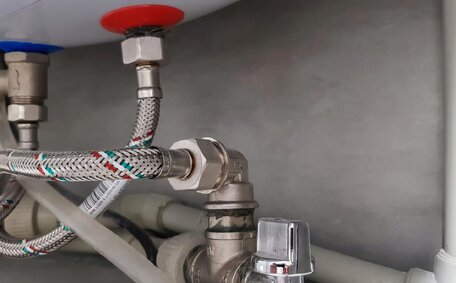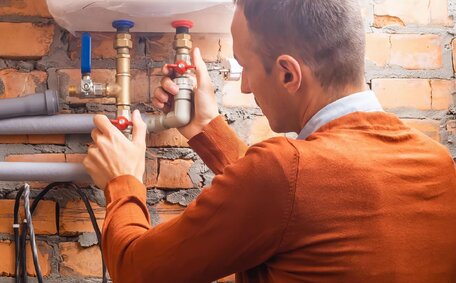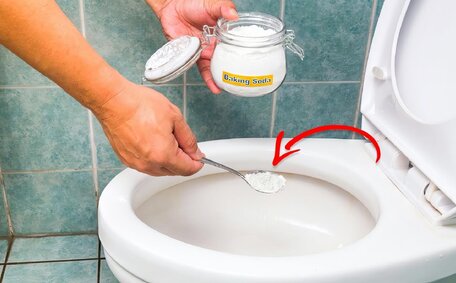Signs There is a Blockage
Several signs may indicate a blocked drain in your home, including gurgling sounds from sinks or tubs, slower-than-usual drainage, and foul sewage odours, especially from floor drains.
If you notice any of these issues, take action right away to clear your blocked drain pathways before backups and flooding can happen.
Upon detecting slow drainage or hearing gurgling, indicating a blockage, promptly flush your drain with hot water to dissolve potential grease buildup. Pouring boiling water down the drain can dissolve grease blockages and help clear your drain. If basic methods like hot water don’t work, using a plunger or drain auger may effectively dislodge stubborn clogs in your pipes. For deep blockages that you can’t clear on your own, a water jetter is a powerful solution offered by professional plumbing services to assist in clearing blocked drain effectively.
Catching a clogged drain early not only aids in conserving a pristine kitchen sink drain, but can also help keep your drains protected from the distress of raw sewage backing up into your home. Make sure to install drain screens, avoid fats oils or excessive toilet paper being flushed down the sink, limit food scraps in sinks, and get your pipes professionally inspected periodically.
Locating the Exact Location of the Clog
Identifying the precise location and cause of the clog is vital to ensure an effective resolution. Recognizing the signs of a blocked drain helps determine cause and the proper approach and tools needed. There are several DIY methods homeowners can try first to narrow down where the clog resides in the sewer drain.
You can isolate sections by plugging drains after each test pour, aiding in clearing blocked areas which can quickly be isolated. A sudden stoppage in drainage can indicate the approximate area of a blockage.
Use basic techniques, such as disconnecting sink, tub, and shower traps, to assess stormwater drains and pipes for blockages. When looking to clean out blocked paths, use a flashlight and small mirror to peer down drains and inspect inside pipes the best you can. If the blockage is out of sight, consider professional help, as the problem likely lies deeper within the main sewer lines.
Professional plumbers use drain cameras to locate and clear obstructions deep within sewer pipes. CCTV inspections provide visual evidence of issues like breaks and root intrusions, precisely locating blockages that restrict sewer line flow.
Listening Devices to Detect Blockages
Devices with sensors enable homeowners, including those on the Gold Coast, to discern blockages in sinks by detecting sounds of disrupted water flow.
Plumbers use acoustic sensors, which emit louder beeps when approaching a blockage, to pinpoint the location within your pipes. Specialised listening devices, provided by a plumbing service and often referred to as electronic water leak detectors, can be very useful for finding the location of blockages down your pipes.
You can then employ these pipe listening tools which work best for pinpointing blockages behind walls, under floors, and deep within pipe systems. They can eliminate a lot of guess work trying to trace the origin of a clog from the drain access point alone.
While handheld sound amplifiers are common for DIY use, professional electronic water leak detectors are significantly more sensitive and accurate.
The way they work is by digitally filtering out ambient background noise, allowing the sensor to hone in on subtle turbulence created by water hitting the clog. This enables inspecting long lengths of piping without having to tear up walls and floors—the amplified sound of water can guide your plumber right to the problem area.
The sounding sensors can detect water flow issues inside your sewer line up to 15 feet away in some instances.
Electronic amplifiers have been found to be an accurate, non-invasive method to uncover drain line problems hidden out of sight.
CCTV/Camera Inspections
Camera inspection through CCTV drain cameras are an invaluable tool for accurately detecting the location and cause of blockages within pipes. A plumber inserts a special waterproof camera on a flexible cable into your drains to locate blockages that hinder normal flow. This camera transmits a live video feed to a monitor at ground level, giving the plumber a detailed perspective on what’s causing blockage in your pipes.
The primary advantage of CCTV inspections is the ability to visually confirm the presence of foreign objects obstructing the flow within pipes. A camera can pinpoint the exact nature and location of a blockage—whether it needs techniques to break up accumulated grease, hair, soap scum, tree root intrusion, collapsed or displaced pipes, mineral deposits from hard water, or invasive groundwater infiltration.
CCTV cameras also reveal less visible issues, such as cracks, fractures and partial breaks, which standard drain snakes may miss. This allows plumbers to diagnose issues and devise the best way to repair. For example, spotting invasive tree roots shows pipe replacement is needed, rather than attempting to break down debris.
Professional drain camera systems used by plumbers, compatible with a hot water system, provide superior lighting, image clarity and cable lengths up to 100 feet to thoroughly inspect long stretches of piping.
The camera head can be manoeuvred to inspect side pipes branching from the main line. recorded footage serves as a useful diagnostic tool for plumbers to study defects in your pipe and assess what fixes are required.
While often used for troubleshooting current blockages, many plumbers recommend periodic CCTV drain inspections even when drainage flows normally. Preventative CCTV inspections can uncover early signs of potential blockages, facilitating timely interventions like pipe relining before issues worsen.
When to Call a Professional Plumber
Attempting to clear drain problems yourself using home remedies may seem appealing, however there are certain scenarios that definitively warrant calling in a professional plumber to properly inspect and unblock your drains.
Simple DIY remedies like baking soda and vinegar may temporarily dislodge minor clogs, but they rarely provide a long-term solution.
To effectively unblock a drain, opt for targeted tools or techniques that specifically tackle hair and soap scum, frequent culprits of clogs. DIY drain clearing methods simply lack the power and precision targeting to eliminate severe or recurring blockages.
Hair and soap residue, often tangled and clinging to pipe walls, are behind approximately 75% of residential drain blockages. Traditional drain augers available at hardware stores may lack the necessary torque and length to tackle dense clogs effectively. Powered professional drain augers are engineered to effectively tackle dense and heavy clog buildups.
Misuse of DIY drain cleaners can lead to significant damage to your plumbing system. Caustic cleaners like lye drain openers carry safety risks and can cause damage to pipes if not completely cleared. Rented high-pressure water jetters may effectively clear tough clogs, but risk damaging older, fragile pipes.
Professional plumbers eliminate the uncertainty associated with self-diagnosing complex drain networks beneath floors and within outside drains buried on your property. Highly trained plumbers possess specialised equipment like pipe cameras to ensure all your blockages are thoroughly inspected and custom fit solutions are devised based on visual findings, rather than mere speculation.
In summary, For routine maintenance, DIY methods are useful, but complex blockages or issues with sewer drains are best resolved by a licensed plumber.






